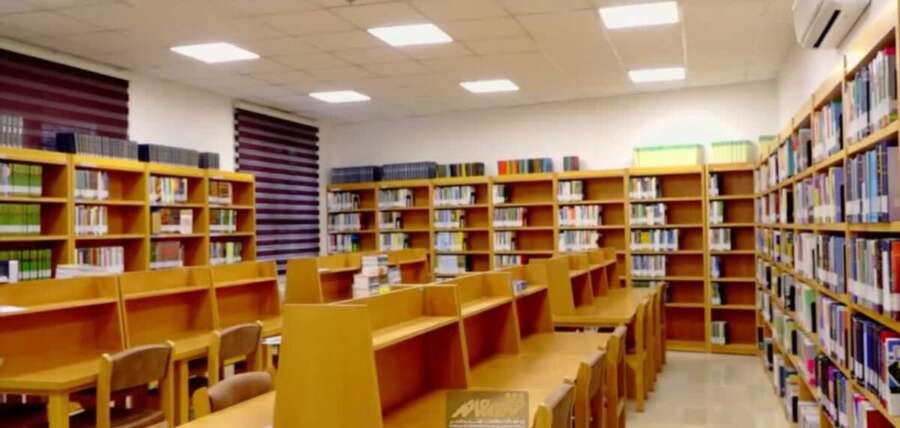The library of the Contemporary Jurisprudence Research Institute began operating on April 21,2021. The purpose of establishing this center was to collect the products of contemporary jurisprudence in physical and digital formats, and currently, important activities have been carried out in both sections.
In the digital library section, there are commercial and non-commercial or open source software that various libraries use in their centers based on the decisions of the organization and the department. The research institute, considering the field of activity and the experiences of the staff and consultants, initially used the open source DSpace software for organizing and creating collections. It also used Mobin Soft library software for printed books, a lending desk, and searching for information sources.
Library infrastructure
The library currently has a reading saloon with an area of 60 meters and a capacity of 12 reading tables for simultaneous use by 24 people, as well as 23 one-way shelves. The management and preparation department is located in the reading saloon.
Library resources
The physical library currently has more than 4,800 specialized books, which include more than 5,500 volumes. There are also more than 20 specialized quarterly titles, which include more than 700 issues, in this library.
In accordance with the policy and major goals of the research institute, in addition to printed resources, the digital library, for researchers to access resources in various areas of contemporary jurisprudence, using the open source Dspace software and personalizing it in accordance with the library resources and benefiting from the expertise of undergraduate and graduate students in the field of information science and knowledge studies, has been able to upload more than 22,000 records, in addition to bibliographic information, the content of each document that existed freely, and make them searchable on the World Wide Web (Internet) in a very short period of time. These resources are in 14 repositories (banks) including: news reports, podcasts, organizational documents, books, articles and theses in three languages: Persian, Arabic and English. Also, in order to make the resources more searchable in this section, efforts were made to clean and unify the data entered in the stagnant fields, and then, with appropriate SEO carried out by the Institute’s Technology Department, the library’s resources were ranked first on the first page of the Google search engine. All library resources in both print and digital sections are available to everyone through the following link:
https://digilib.feqhemoaser.com

